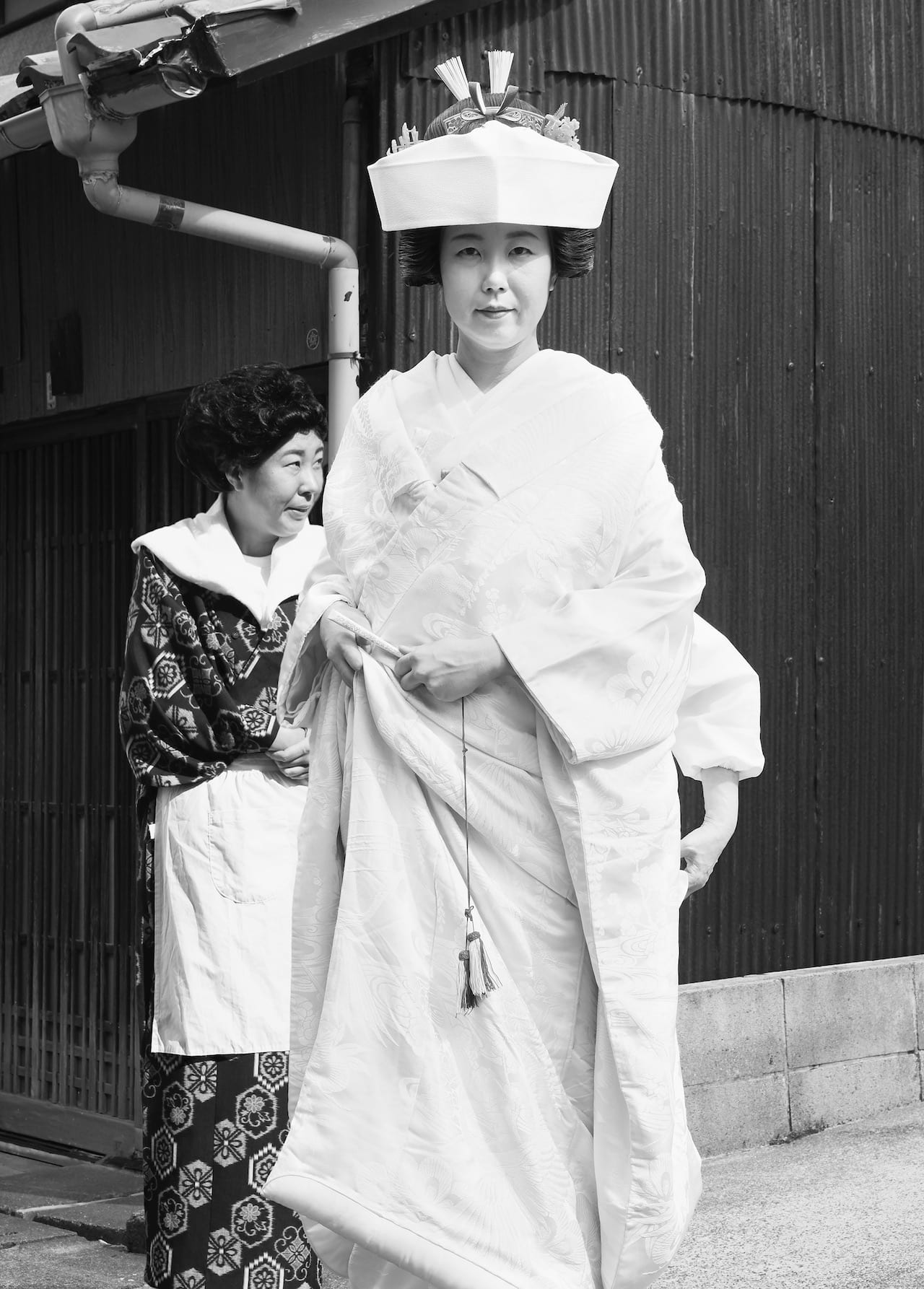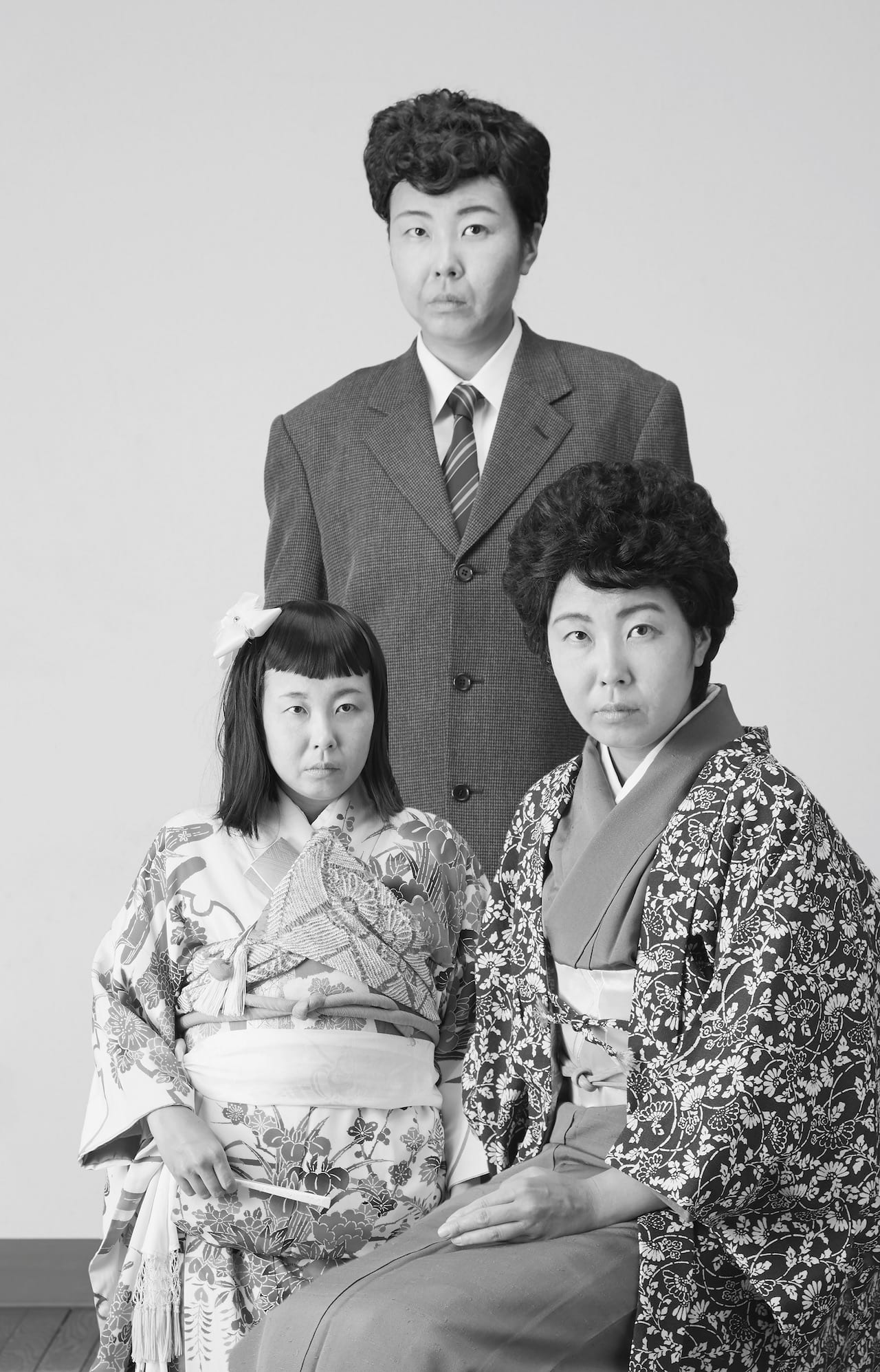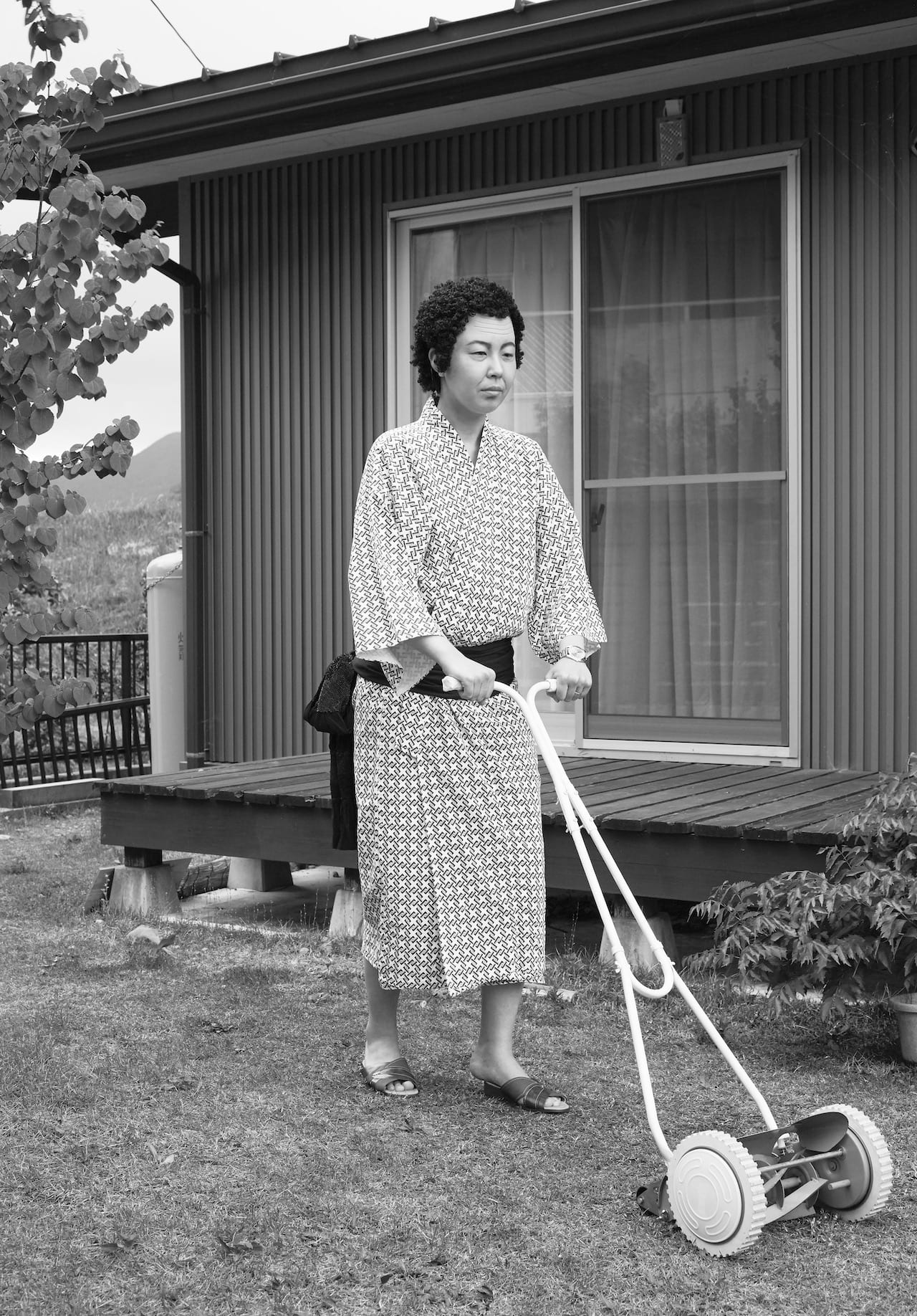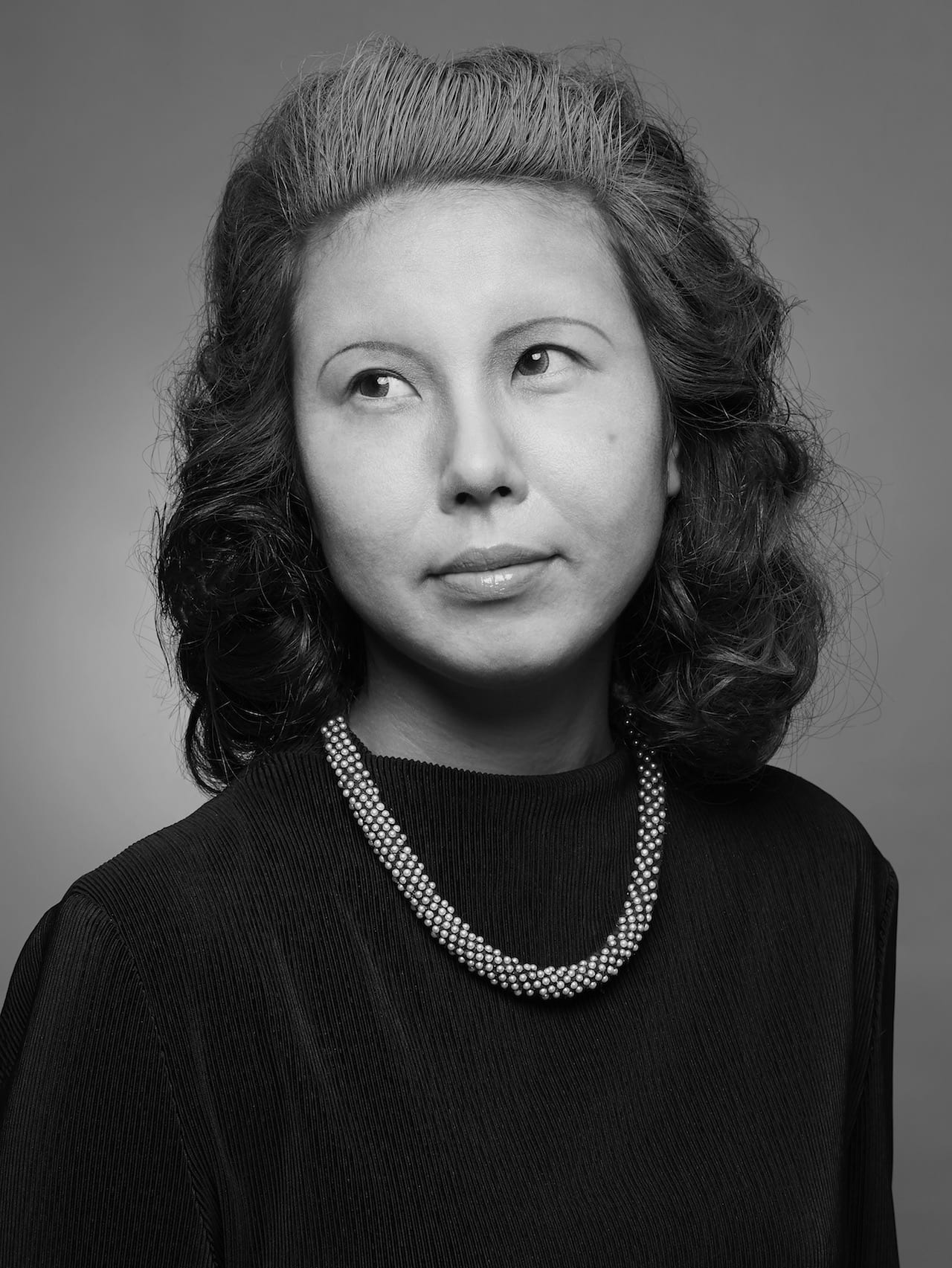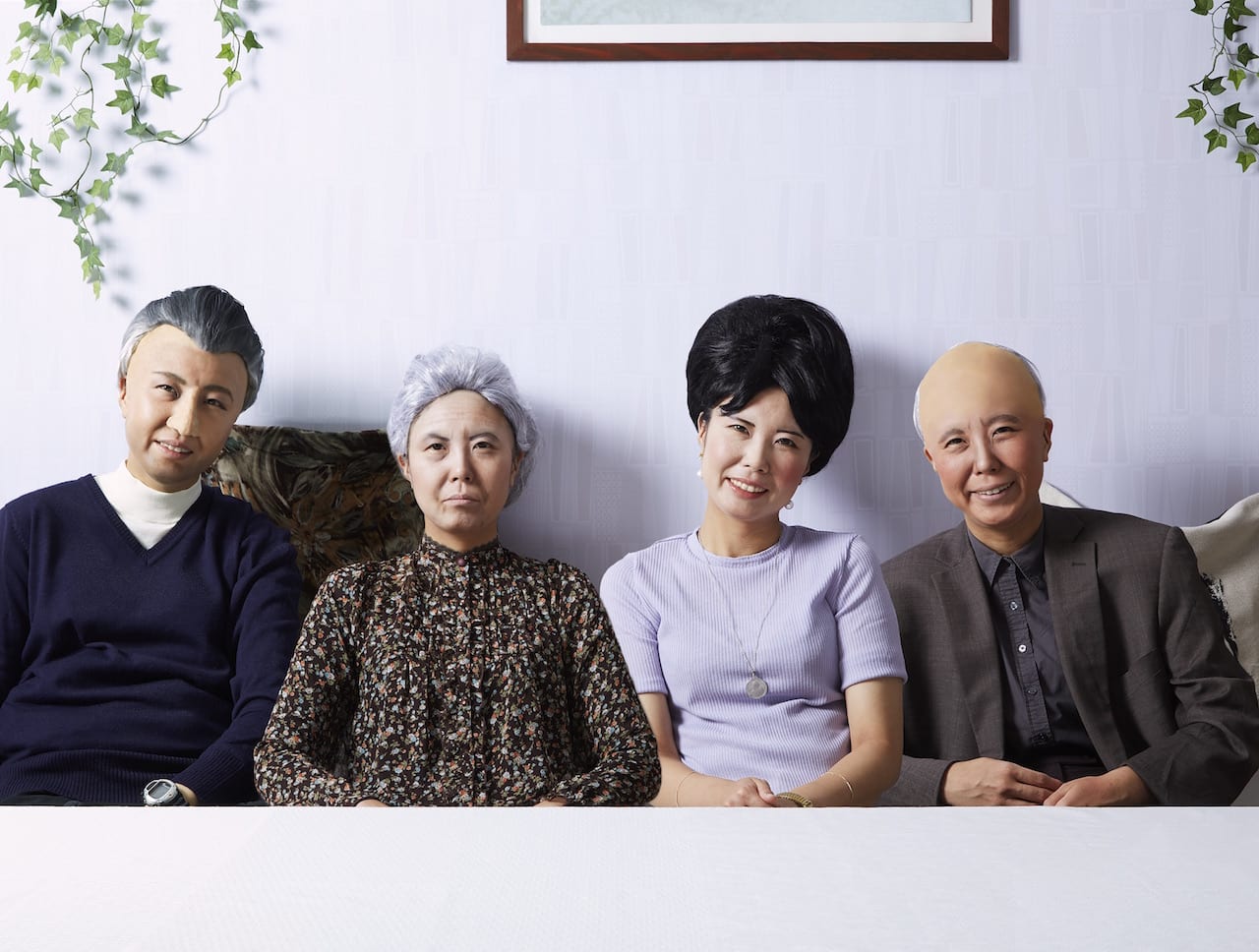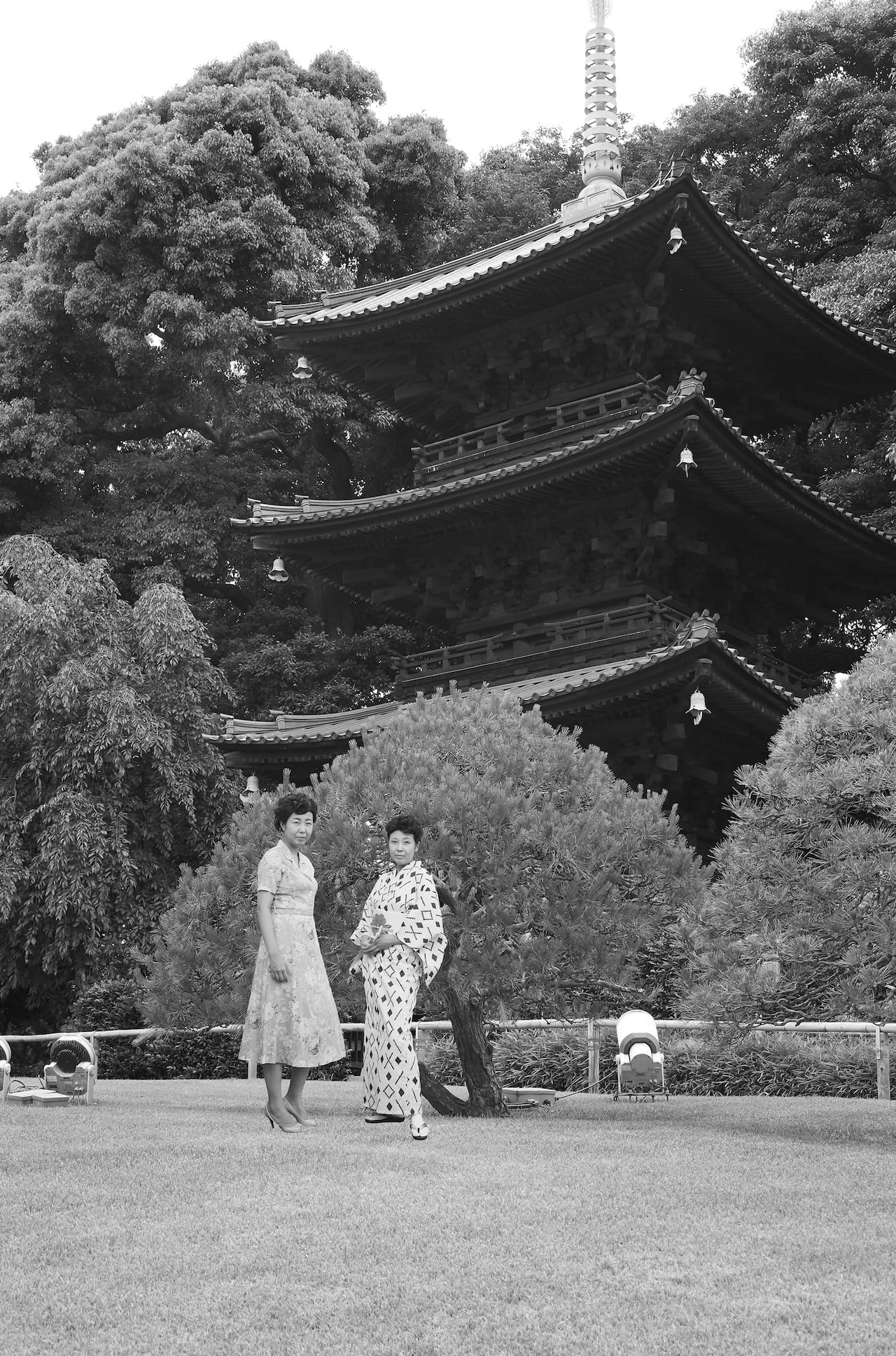Roland Barthes’ tear-jerking account of his confrontation with his mother’s photograph captures the emotions that a picture of a loved one can evoke, and the significance of a family photograph. From early formal portraits of upper-class families shot in studios to contemporary snaps, images have welded families together under the premise of memory. But with private pictures now becoming more public, family photographs are evolving in the way we document our histories.
Rie Yamada’s family photographs take it a step further: instead of documenting her nearest and dearest, in her series Familie werden (which translates as Become a family), the photographer plays every relative herself, highlighting gender stereotypes and social archetypes with a good dose of hilarity and absurdity.
“In an age where the form of families, family photos, and society are evolving, the individual is the functioning unit in society, and photography has also become an individual process,” says Yamada, who was born in Japan but now lives in Berlin, where she completed her MA in visual communication at the Weissensee Academy of Art last year.
“Today, other than commemorative photographs from events, like weddings, photographs are only seldom collected in an album. Instead, they are saved on a hard disk or somewhere on the computer or lost in the mobile phone. The story of the families have become fragmented, and the memories are no longer shared between the people in the pictures.”
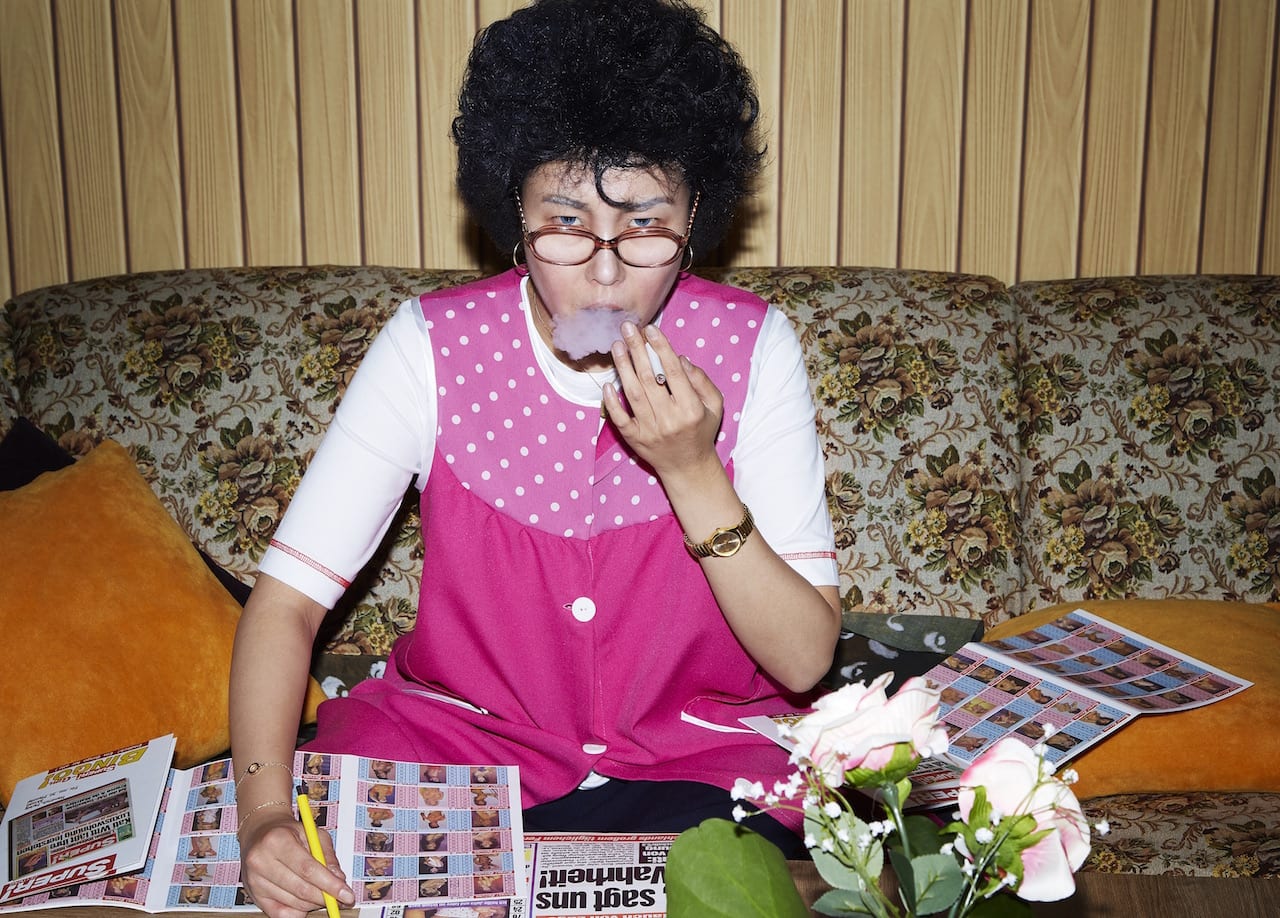
For Yamada, asking what makes a family photograph is the same as asking what makes a family. And with the nuclear family changing as conventional family albums disappear, she uses her lens to imagine what the future might look like – and it’s a wonderfully bizarre one.
BJP’s assistant editor, Izabela Radwanska Zhang, who nominated the photographer having seen her work at Hamburg’s Deichtorhallen, in a group show of New German Photography that travels to Vietnam and Mexico later this year, says: “Yamada has not only chosen a fascinating and relevant question to explore, but the intricate precision and thought that she puts into the construction of each image is very impressive and reflective of her sensibility as an image maker.”
Each image references a picture of an anonymous family, chosen from a vast collection of snapshots that Yamada has amassed from flea markets, auctions and online archives. She only re-stages photographs in which the subjects were aware that they were being photographed, as a way to depict how they wanted to be perceived – perhaps not always how they really were.
For Yamada the process also became an investigation into how families want to be remembered. “My impression is that a family often appears to manifest their idea of what the family should look like when they are facing the camera,” she remarks.
That said, this may not always be the case; he recalls one particularly eccentric set of pictures from East Germany that she describes as “far from conventional”. Meanwhile, in Japan, online portals offer “rental families”, where users can select people of any age and gender in cases where a stand-in aunt or sister-in- law, for example, is needed to boost numbers at an event. These rent-a- families are the focus of a forthcoming project.
Yamada’s photographs are staged self-portraits through other people, and are, in a sense, a search for her own image, in the same way a family photo is intended to define and project their identity. Nevertheless, for Yamada the question of what a family is remains. “I’m still not sure – this is precisely the question I am trying to find the answer to through my projects,” she says.
rieyamada.com This article is taken from BJP’s 2018 Ones to Watch issue www.thebjpshop.com Rie Yamada is one of five Ones to Watch whose work BJP will be exhibiting this year at Peckham 24, which takes place over the Photo London weekend from 18-20 May www.1854.photography/2018/05/bjp-peckham24/
